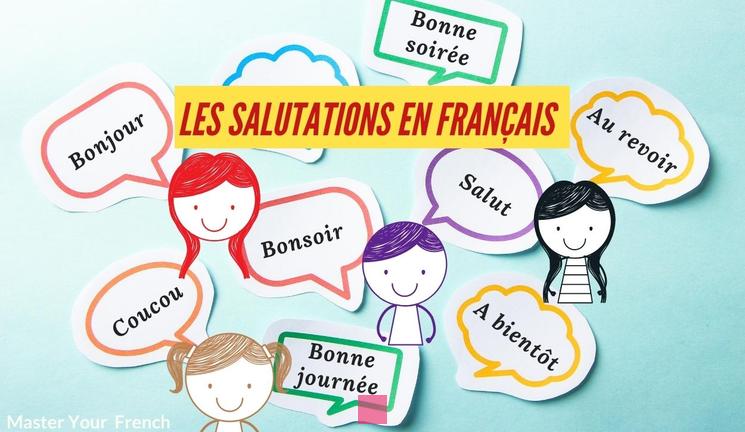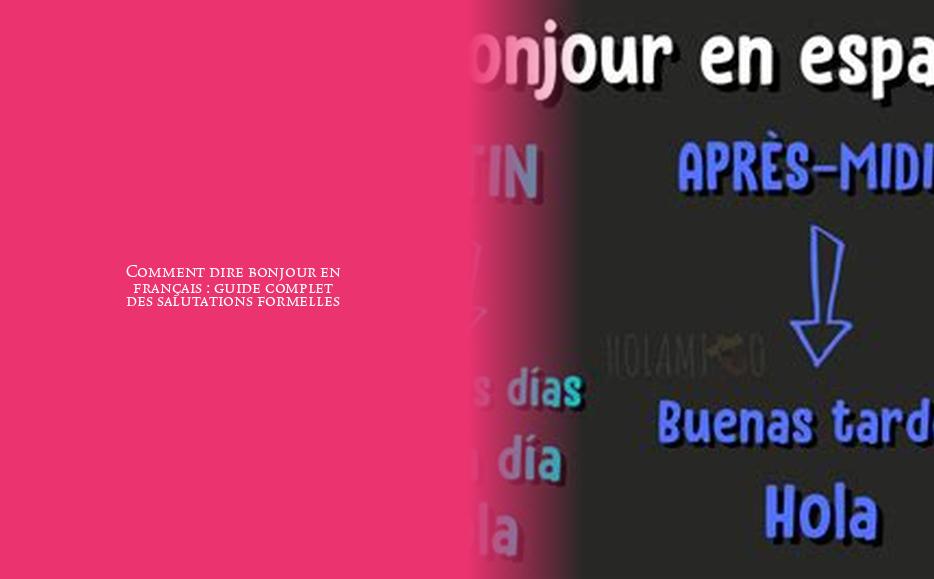Au sommaire IMAGYNA :
- Bonjour peut être utilisé dans toutes les situations, mais pour être encore plus poli, on peut ajouter Madame ou Monsieur.
- Mademoiselle est maintenant exclusivement utilisé pour s’adresser aux jeunes filles et n’est plus basé sur l’état matrimonial d’une femme.
- Bonjour est couramment utilisé pour saluer quelqu’un et pour engager une conversation de manière respectueuse.
- Bonjour peut signifier bonjour, bon après-midi ou simplement salut en fonction du moment de la journée.
- En français, il est courant de dire bonjour pour saluer les gens à tout moment de la journée, en particulier le matin et l’après-midi.
- Il est acceptable d’utiliser des expressions plus informelles comme hello ou coucou lorsque l’on discute avec des amis et de la famille.
French Greetings in Formal Settings

Rebonjour! Hi again!
Bonjour works in all situations but if you want to be extra polite, you can add Madame (Ms.) or Monsieur (Mr.). This is pretty standard to hear Bonjour Madame or Bonjour Monsieur when you enter a French bakery. You’ll often hear store owners in France greet kids and teens with: Bonjour Mademoiselle. Mademoiselle (Miss) used to be a way to address unmarried women, regardless of their age. The term is now exclusively used to address young girls and it’s no longer based on a woman’s marital status.

Understanding the Meaning of Bonjour in France
Bonjour is a very common word in France. It is often used to greet someone and more generally to make conversation. But does this word have a deeper meaning? More importantly, how is it used in everyday life? Discover in this article the use and meaning of the word bonjour in France and how to say it correctly.
A lire absolument > Questions hilarantes pour animer le jeu Je n’ai jamais : J’ai déjà, j’ai jamais hot ?
When to Say Hello in French
— Les Signes Astrologiques les Plus Chanceux en 2023 : Découvrez Votre Destin Étoilé
In French, it is common to say bonjour to greet people at any time of the day, especially in the morning and afternoon. It is a polite and respectful way to start a conversation or to greet someone you meet. However, if you are chatting with friends and family, it is acceptable to use more informal expressions such as hello or cuckoo.
Bonjour Meaning
What does bonjour mean, and when is it used? Bonjour in French can mean good morning, good afternoon, or simply hello. We use the same word early in the day to say good morning, then its meaning switches to good afternoon for the rest of the day. We don’t use the direct translations of bon matin or bon après-midi in France, though they’re used sometimes in Québec. So what is bonjour in English? The easiest translation is just hello, while other options may include hi, hey, or even the rhetorical how’s it going? or what’s up?. The old-fashioned greeting good day is another bonjour translation in English.
Common Phrases to Greet Someone
>> 110 Messages Romantiques pour Souhaiter une Douce Nuit à Son Amoureux : Inspirez-vous !
1) “Bonjour” means literally wishing someone a good day. In a formal setting, it is important to specify the title of the person we are addressing: “Bonjour Madame” or “Bonjour Monsieur”. “Bonjour” can be used when entering a waiting room, an elevator, a shop, etc. Friends or relatives greet each other with a small kiss on the cheeks. If you are learning French in the summer, you will notice that the residents of the Côte d’Azur give each other two little kisses, usually offering the left cheek! 2) But until what time do we say bonjour? When learning French in France, you will find that the French themselves do not have a precise answer to this question! In general, the term bonsoir only takes on its full meaning as the day draws to a close.
